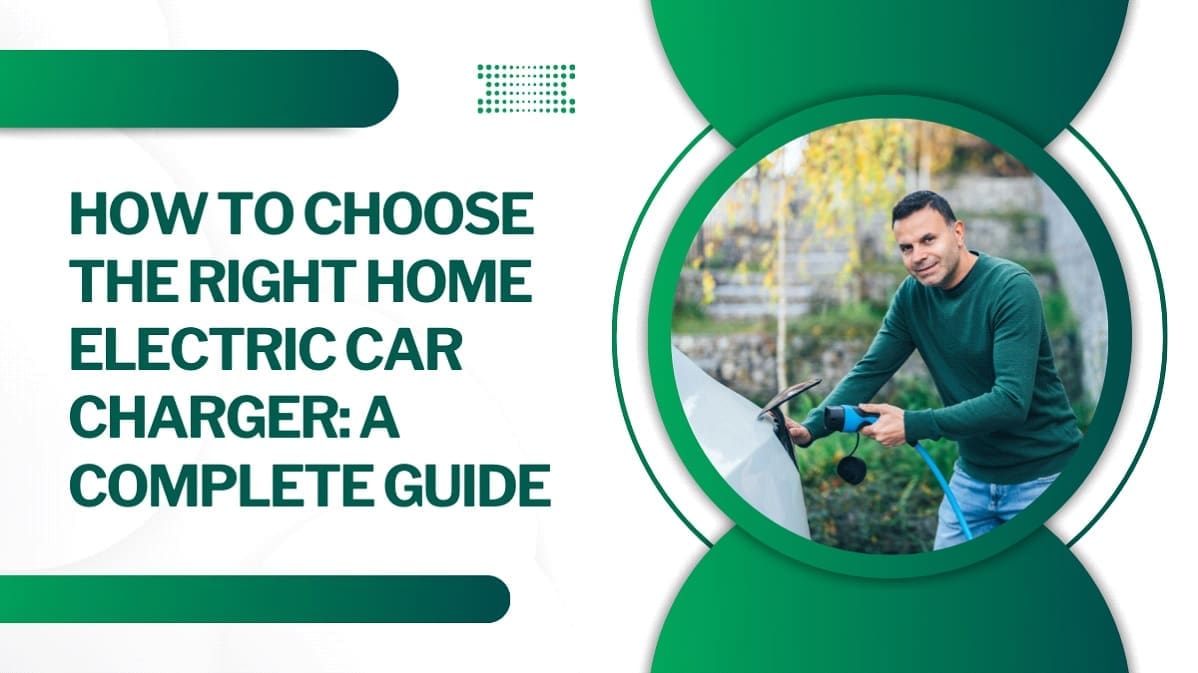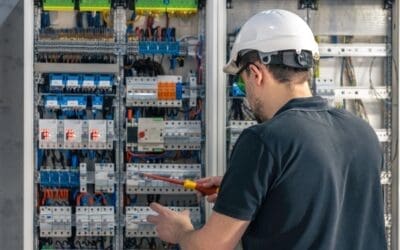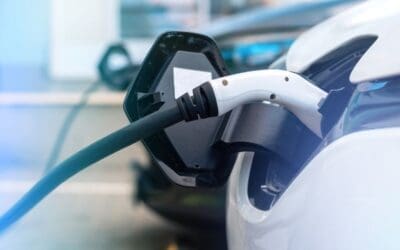Because electric vehicles are becoming more and more popular, many homeowners are looking to install electric car chargers for convenience and efficiency at home. Charging your EV at home not only saves time but also provides peace of mind, knowing your car is always ready to go. If you’re considering installing an EV charger, here’s what you need to know to make an informed decision.
1. Why You Should Consider a Home Electric Car Charger
Home electric car chargers offer numerous benefits. The primary advantage is the ability to charge your EV overnight, ensuring it’s ready for your daily commute without the need for public charging stations. This is especially beneficial if you have a long workday or live in an area with limited public charging infrastructure.
Additionally, home chargers allow you to take advantage of lower electricity rates during off-peak hours, often known as Time-of-Use (TOU) rates. Your total billing expenses can be greatly decreased by doing this.
2. Choosing the Right EV Charger for Your Home
When selecting an EV charger for your home, there are a few key factors to consider:
Level 1 vs. Level 2 Chargers
EV chargers are mainly divided into two groups: Level 1 and Level 2.
- Level 1 Chargers: These are standard 120V chargers that plug into a regular household outlet. While they are the least expensive option, they charge much more slowly—usually providing 3-5 miles of range per hour of charging. This might be sufficient for drivers with low daily mileage, but it’s not ideal for anyone who drives long distances regularly.
- Level 2 Chargers: These require a 240V outlet, typically installed by an electrician. Level 2 chargers are faster, providing 15-30 miles of range per hour of charging. Some people think that quicker charging is worth the extra money, especially if they have a busy schedule or a long drive.
Charging Speed and Power Output
Kilowatts (kW) are used to measure how fast your EV charger charges. For most home setups, a Level 2 charger with a power output of 7.6 kW to 9.6 kW is ideal. This will provide the most efficient and reliable charging for most electric cars. If you have a vehicle that supports faster charging (such as a Tesla or newer models), consider exploring higher-power chargers, but keep in mind that installation costs can be higher.
3. The Role of Your Electric Company
Your electric company plays a significant role in how much you’ll pay to charge your EV at home. Many electric companies offer special EV charging programs that provide discounts during off-peak hours or incentives for installing home chargers. These programs are designed to encourage EV adoption and help reduce the strain on the electrical grid during peak demand times.
Before installing a charger, contact your electric company to see if they offer any rebates or special rates for EV owners. You can reduce your overall installation and electricity costs significantly.
Time-of-Use (TOU) Rates
Some electric companies offer time-of-use rates, which means electricity costs less during specific times of the day. For example, you may pay a lower rate for electricity during the night, which is perfect for charging your EV while you sleep. If your electric company offers TOU rates, charging your car at night could help you save significantly on your energy bills.
4. Installation Considerations
Installing a home electric car charger is a relatively straightforward process, but there are a few things to keep in mind:
- Electrical Capacity: Make sure that the electricity in your home can handle the extra load that an EV charger will put on it. Sometimes, you might need to update your electrical panel or give the charger its circuit.
- Location: The location of the charger should be convenient for your daily routine. Ideally, it should be near your parking area and have access to a 240V outlet for a Level 2 charger.
- Professional Installation: A Level 1 charger can be put in by the homeowner, but a Level 2 charger usually needs to be put in by a professional to make sure it is safe and meets local electrical rules. For the job, make sure to hire a proper electrician.
5. The Future of Home EV Charging
Technology for charging electric cars will keep getting better as they become more popular. We may see faster charging speeds, improved battery technology, and even wireless charging systems in the future. Setting up a home charger for your electric car is still one of the easiest and least expensive ways to keep it charged.
Get your charger Installed now
Choosing and installing a home electric car charger is a smart investment in both your vehicle and daily convenience. With the right charger and installation, you can ensure that your EV is always ready to go when you are. At Got Electric, we’re dedicated to helping homeowners like you select and install the perfect EV charger for their needs.
Happy charging! Contact Got Electric today for a consultation and let us help you power up your electric vehicle with ease.
With offices in Ijamsville, MD & Linville, VA, Got Electric offers residential and commercial electric work, including installation, safety inspections, repairs, lighting design, and troubleshooting.
Got Electric also specializes in solar Energy Projects. Our electricians are fully licensed by state and local jurisdiction, ensuring that your electrical projects will be installed to industry and code standards.
Energized by Auxilium Technology






